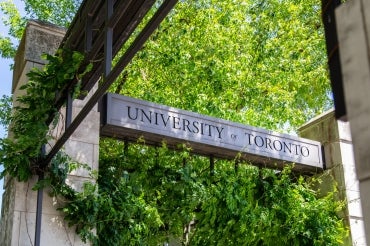
(photo by Daria Perevezentsev)
Published: April 6, 2021
By
UniForum, the global benchmarking program used to enhance administrative and support services at the University of Toronto, is set to resume this spring after a hiatus due to the COVID-19 pandemic.
Launched at U of T in 2019, the multi-year initiative involves the rigorous collection of data that is then compared to information gathered from more than 50 universities around the world, most of whom have been part of the UniForum initiative for more than a decade.
In its first year at U of T, UniForum collected information about the services and activities that more than 20,000 employees – including casual employees, work-study students, part-time and full-time employees – completed in fiscal 2018-2019 year in support of the university’s academic mission. The initiative provided a significant amount of detailed and big picture data across the university. The information will be used as a baseline as U of T enters the second year of data collection.
Information collected in 2021 will generate more trend-line data and provide insight into how the university adapted the delivery and resourcing of its services during the pandemic.
“Our employees have gone above and beyond this year and it’s important that we capture how things may have shifted in light of exceptional circumstances,” said Kelly Hannah-Moffat, vice-president of human resources and equity. “The continuation of UniForum will help us more deeply understand how we deliver our services, identify under-resourced areas and inform how we grow as an organization.”
Since U of T joined UniForum in 2019, more Canadian universities have signed on to the program to collect data and share administrative processes and practices alongside other research-intensive universities such as the University of Oxford, the University of Cambridge and the University of Sydney.
“We’ve learned quite a bit from the first year of data and have established a strong foundation in this benchmarking process,” said Scott Mabury, vice-president of operations and real estate partnerships. “We have already seen opportunities to improve our systems and reimagine some of our transactional processes so that employees can focus on their priorities.”
“I am encouraged by our community’s commitment to the process and want to thank our divisional and administrative leaders for their partnership and continued support.”
To better understand the perspectives of U of T staff, faculty and librarians about the university’s core services, this year’s data collection will include a second Service Effectiveness Survey, similar to the survey conducted in 2018.
